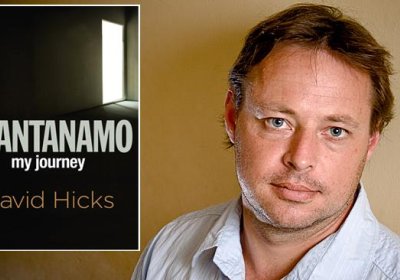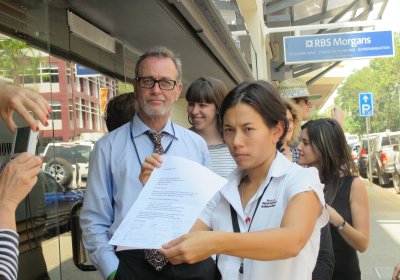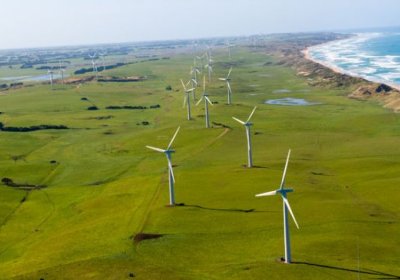"The pay offer is a lemon" has been the theme of protests by Australian Taxation Office (ATO) workers around Australia over the past two weeks.
Workers have put lemons on their desks and stuck up posters of lemons to symbolise their rejection of management's pay offer of 9% over three years, which is less than the rate of inflation.
Some workers have called for strike action in the tax office, as has happened in other government agencies.
Australia
The legal team of former Guantanamo Bay prisoner David Hicks submitted a communication to the United Nations Human Rights Committee on August 23.
It argues the Australian government treatment of Hicks has violated the International Covenant on Civil and Political Rights, to which Australia is a party.
The Orica chemicals plant at Kooragang, near Newcastle NSW, released hexavalent chromium (VI) into the atmosphere on August 8. Up to 20 workers were exposed in the accident.
The Environmental Protection Authority (EPA) was not notified of the accident for 16 hours. Residents of nearby Stockton were not told that the toxic pollutant blew over their suburb for 54 hours.
It has become a cliche in mainstream media and political discourse that feminism is no longer necessary in society. However many ordinary women disagree.
Green Left Weekly asked members of the newly formed Feminist Collective of South Australia about feminism’s relevance today.
Emma Gray-Starcevic said: “Women still earn on average 17% less than men in Australia, and are under-represented in a huge number of jobs, especially in industries such as law, business and politics — jobs synonymous with high wages and powerful positions.
A poll commissioned by new online campaign NewsStand found 61% of Australian people agreed a “public inquiry into the Australian media is necessary so the public can better understand the relationship between politicians, corporations and media outlets”.
NewsStand, backed by GetUp, then launched an online petition on August 11 calling for parliament to “publicly scrutinise the media landscape as a whole”, which quickly gathered almost 30,000 signatures.
We’ve heard it all before — “the larger the cake, the larger each slice”. The bigger the economy gets, the more productive we are, the more we should expect to share in the wealth.
Trouble is it’s not true: while the economy grows and profits rise, bosses are cutting jobs and attacking our conditions. While they clean up, we lose out. And unless we fight to stop it, the imbalance will only get worse.
The land around Muckaty Station, 120 kilometres north of Tennant Creek in the Northern Territory, was nominated as a possible site for a nuclear waste dump by the Northern Land Council in May 2007. This was accepted by the federal government in September 2007.
Natalie Wasley from the Beyond Nuclear Initiative told Green Left Weekly: “A small group of traditional owners, hoping for cash for their impoverished community and improved services like roads, housing and education, agreed to the dump site. However, many other traditional owners remain opposed to the plan.
According to Australia’s outgoing discrimination commissioner Graeme Innes, racism is still a big problem in Australian society.
This is nothing new. Racism has been an issue in Australia since the very beginning of white colonisation, when Aboriginal people were forced from their lands to make way for the new colonial Australia.
But racism, like our society, has changed with the times. This throws up new challenges in tackling it.
A dozen members of Darwin's legal community presented a letter to ALP MP Warren Snowdon on September 2 calling for the federal government to comply with the High Court's recent decision on the "Malaysian Solution".
The High Court said the ALP government's plan to deport refugees to Malaysia was illegal. The letter called on federal politicians to ensure the speedy resolution of asylum seeker claims, universal access to legal representation and an end to mandatory detention.
The announcement by BlueScope that 1100 workers will be sacked from the local steel industry has sent shockwaves through the community and much of the country.
Another 200 people could be sacked from the Port Kembla wharves and at least 100 more local workplaces will be seriously affected.
Many of the sacked workers have been at the steelworks for decades. They are now being told to get out of town, to move to Queensland or Western Australia, to forget about their ties to Wollongong, because other corporations may need them somewhere else.
If you’ve even casually followed the climate debate in Australia over the past few years, it’s most likely you’ve heard a Labor or Liberal party politician utter the phrase: “Governments should not pick winners.” The idea is that governments’ role is not to give direct support to renewable energy such as wind power or solar power, but instead to create the market conditions where the best, most efficient technology can come to the fore. But the argument is always used as an excuse for why governments cannot pick clean, renewable energy.
The federal government rejected bids to protect James Price Point from gas development when it announced its National Heritage Listing of almost 20 million hectares of the iconic Kimberley region in Western Australia last week.
- Previous page
- Page 803
- Next page











